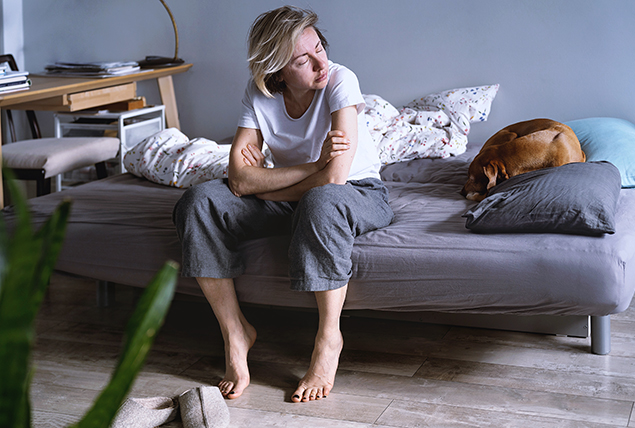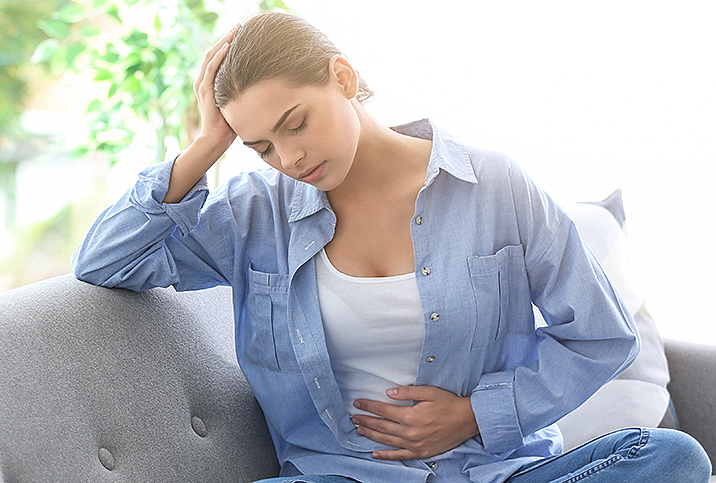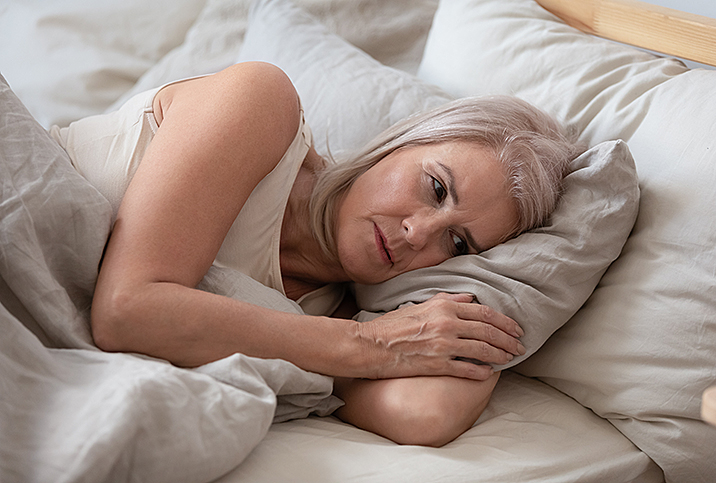How Will Menopause 'Cure' My Endometriosis?

Endometriosis affects around 1 in 10 females of reproductive age, with the most common symptoms being painful periods, pain during sex and/or when opening the bowels, chronic pelvic pain, bloating and infertility. Furthermore, endometriosis is a serious condition that can affect quality of life and interfere with daily activities. A 2018 study involving 743 women with endometriosis revealed that 56 percent experienced daily pain, with an average score of 8.9 on a severity scale of 0 to 10.
Women who are approaching menopause or going through the menopausal transition may wonder if their endo symptoms will disappear or reduce in intensity. While menopause can provide relief for many women struggling with endo, there's no guarantee it is a cure.
What to expect during perimenopause
Perimenopause can last anywhere from a few months to 10 years, with the average transition time being four years. The symptoms can be uncomfortable for many women, as night sweats, mood swings, irregular periods and fatigue become prevalent.
However, Barbra Hanna, D.O., an OB-GYN and a menopause specialist from Wheaton, Illinois, and the founder of MyMenopauseRx, said perimenopause can be more difficult for women with endometriosis.
"In the early perimenopause transition, as estrogen levels fluctuate, symptoms of endometriosis, pelvic pain and heavy periods can worsen," Hanna said.
Some women may notice their periods become more frequent, rather than irregular. This can contribute to heavier bleeding, which at worst, could lead to anemia. You should speak to your OB-GYN if you have any of these symptoms, as they can offer hormonal birth control pills or the Mirena coil, which can reduce the intensity of symptoms. In some cases, laparoscopic surgery to remove lesions may provide better relief for women who are unresponsive to medications.
What to expect after menopause
Now we know perimenopause can worsen endometriosis symptoms, but what happens after menopause? Well, the good news is many women see a huge improvement.
"Endometriosis is stimulated by estrogen," Hanna said. "After menopause, a person's estrogen levels decline and symptoms of endometriosis generally improve and resolve."
However, there is a small minority of people who may continue to experience endometriosis symptoms after menopause. This accounts for 2 percent to 5 percent of endometriosis cases, according to medical literature. There's not sufficient evidence to explain why this happens, but it is suggested that hormone replacement therapy (HRT) could cause a resurgence of endo symptoms in some individuals.
While it's uncommon for women with no prior history of endometriosis to develop the condition after menopause, it is still possible, said Clare Spencer, M.A., D.M., a registered menopause specialist, general practitioner and co-founder of My Menopause Centre in the United Kingdom.
"It is still not clear whether endometriosis in the postmenopausal represents a recurrence or development of brand-new endometriosis," Spencer explained. "The endometriosis may have been present for many years and only discovered at the time of the menopause during investigation for other symptoms."
Can HRT be used?
There are concerns that HRT can cause a recurrence of endometriosis, so some people may be hesitant to use it in the management of menopausal symptoms. However, women who suffer from endo can still use HRT, according to Spencer.
"HRT consists of two hormones: an estrogen and a progestogen," she said. "The estrogen helps manage symptoms of the menopause transition. The other hormone, progestogen, is taken primarily to keep the womb lining thin."
While the estrogen can potentially stimulate endometriosis, the risk remains very low, so you shouldn't let that prevent you from starting treatment.
"The progestogen usually keeps endometriosis at bay; progestogens are often used to treat endometriosis," Spencer said. "If women want to take HRT and have a history of endometriosis, it is important to make sure there is a balance of the two hormones. A discussion with a doctor to make sure the HRT is right for you is important."
Spencer recommended that you avoid high doses of estrogen initially to make sure the HRT doesn't stimulate any endometriosis.
How to treat endometriosis after menopause
Treating endometriosis after menopause is more challenging as options are limited, Spencer explained. Before menopause, management options usually start with hormones aimed at reducing estrogen production or suppressing estrogen stimulation. Some treatments aim to put you into temporary medical menopause or provide extra progestogens to suppress activation of the endometriosis.
Spencer added that after menopause, the ovaries stop making estrogen, and as hormone levels are naturally low, hormonal treatment is less likely to help.
"A discussion with a gynecologist is key, working out whether the symptoms are related to endometriosis and talking through options," she said. "Surgery may be needed to physically remove the endometriosis, though hormone treatments may still play a part."
This is an under-researched area, so treatment options have to be determined on an individual case basis. You may try several different options before you find one that resolves your symptoms.


















